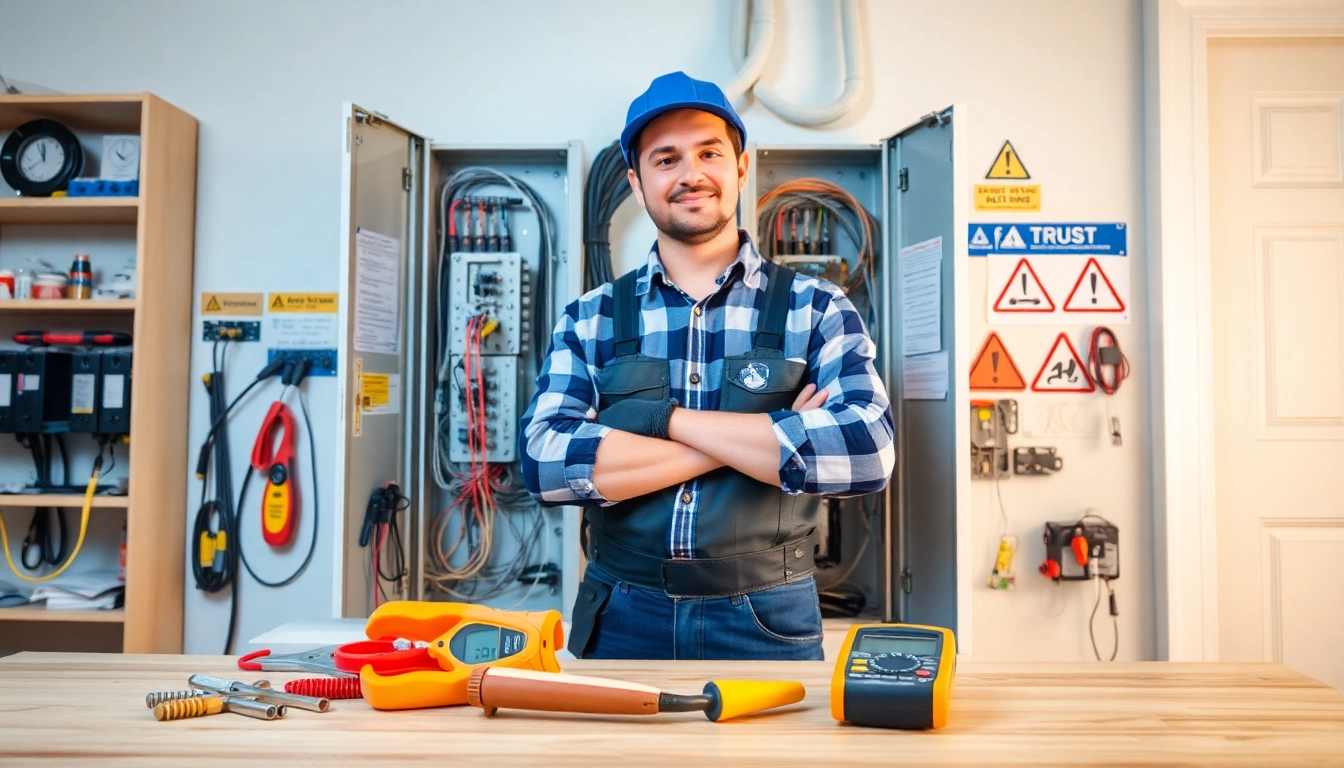Understanding Electrical Panel Upgrades
In today’s world, where our dependence on electricity continues to grow, ensuring that your home is equipped with an adequate electrical system is essential. One critical component of any home’s electrical system is the electrical panel. An Electrical Panel Upgrade can often be necessary as homes evolve and tech requirements change. In this comprehensive guide, we explore the intricacies of electrical panel upgrades, providing insights that will help homeowners make informed decisions.
What is an Electrical Panel Upgrade?
An electrical panel upgrade involves replacing an old electrical panel with a new one, which usually has a higher amperage capacity and better safety features. Standard residential panels typically range from 100 to 200 amps, with 200 amps becoming the standard for newer homes. Upgrading your panel can significantly improve the power distribution in your house, allowing you to safely run more appliances and electronics.
Signs You Need an Electrical Panel Upgrade
Recognizing the signs that indicate a need for an electrical panel upgrade is crucial for maintaining both safety and efficiency. Here are some key indicators:
- Frequent circuit breaker trips: Regularly tripped breakers suggest overloading and that your panel cannot handle the load.
- Old panel type: If your panel is over 20 years old, it may not meet modern standards for safety and functionality.
- High electrical demands: If your household has grown or if you’ve added numerous electrical devices, your old panel might not suffice.
- Burning smells or scorch marks: These are serious signs of electrical problems requiring immediate attention.
Benefits of Upgrading Your Electrical Panel
Upgrading your electrical panel offers several notable benefits, including:
- Increased capacity: A new panel can handle more circuits and higher amperage, allowing for modern electrical needs.
- Enhanced safety: Newer panels are designed with modern safety features, reducing the risk of fire and electrical shock.
- Improved efficiency: Upgraded systems can help reduce energy costs by more efficiently managing electricity distribution.
- Home value increase: A modern electrical system adds value to your home, making it more attractive to potential buyers.
Cost Factors in Electrical Panel Upgrade
Average Costs for an Electrical Panel Upgrade
The cost of upgrading an electrical panel can vary widely based on several factors. Generally, homeowners can expect to pay between $800 and $4,000 for a panel upgrade, depending on the complexity of the job and local labor costs. Key cost considerations include:
- Panel type: Standard panels tend to be cheaper than specialized options.
- Labor costs: Electricians typically charge $50–$120 per hour, and the total time required can significantly impact final costs.
- Local permits: Depending on your municipality, additional fees may be associated with permits required for electrical work.
Labor vs. Material Costs
Understanding the breakdown of costs associated with an electrical panel upgrade helps homeowners plan effectively. Material costs often range from $100 to $500 for the electrical panel itself, while labor can add significantly to the total cost, given the expertise and safety rules involved. Complex installations, such as moving the panel or upgrading wiring, can lead to higher labor charges. It’s essential to obtain multiple estimates to ensure a fair price for both labor and materials.
Financing Options and Tax Credits Available
For those concerned about the costs of upgrading, various financing options are available, including home improvement loans and credit that help manage upfront costs. Additionally, homeowners may qualify for tax credits, particularly for energy-efficient upgrades. For example, under certain programs, homeowners can receive credits for upgrading to energy-efficient panels. Researching available state and federal incentives can significantly lessen the financial burden of an upgrade.
How to Choose a Professional for Your Upgrade
Finding Qualified Electricians
Finding a reputable and qualified electrician is essential for a successful electrical panel upgrade. Begin your search by looking for licensed professionals with a solid track record and positive customer reviews. Websites like Angie’s List, HomeAdvisor, and specialized electrical forums can serve as valuable resources for finding reputable contractors.
What to Expect During an Upgrade Consultation
During your initial consultation, a qualified electrician will assess your current panel, discuss your electrical needs, and recommend an appropriate upgrade. Be prepared for a thorough inspection of your home’s wiring and electrical systems. The electrician may ask questions regarding your daily electrical usage and any future plans you have for additional power needs.
Questions to Ask Before Hiring
Before selecting an electrician, consider asking the following questions:
- Are you licensed and insured?
- Do you have experience with panel upgrades?
- Can you provide references from previous clients?
- What is the estimated timeline for the project?
- How will you ensure safety during the upgrade?
Step-by-Step Process of Upgrading an Electrical Panel
Preparing Your Home for the Upgrade
Before the upgrade, the electrician will prepare your home by ensuring that the electricity is safely turned off, removing old panel components, and inspecting existing wiring. You may need to clear the area around your electrical panel for safe and easy access.
Understanding the Safety Protocols
Safety is paramount in any electrical work. A qualified electrician will follow strict safety protocols, including wearing appropriate protective gear, using insulated tools, and adhering to all local electrical codes. Ensuring that the work area is free of any hazards is also vital.
Post-Upgrade Checks and Maintenance
After the installation, the electrician will conduct several post-upgrade checks to ensure that everything is functioning correctly. This process typically includes testing the panel for proper voltage levels and ensuring that all breakers are functioning as intended. Homeowners should ask for documentation of the work completed and any warranties that may apply.
Long-Term Benefits of an Electrical Panel Upgrade
Increased Energy Efficiency in Your Home
An upgraded electrical panel can improve your home’s energy efficiency by optimizing power distribution and reducing energy loss. Modern panels are designed to handle higher loads without wasting power, which can lead to reduced energy bills over time.
Meeting Future Electrical Needs
As technology evolves, your household’s electrical needs may expand. Upgrading your electrical panel ensures that your home can safely accommodate future additions, such as home offices, electric vehicles, and smart home devices, without risking overloads or outages.
Enhancing Home Safety and Compliance
Finally, upgrading your electrical panel not only addresses existing electrical issues but also brings your home in line with the latest safety standards. Ensuring that your home’s electrical system complies with current regulations protects both your family and your property, mitigating the risk of electrical fires and other hazards.

